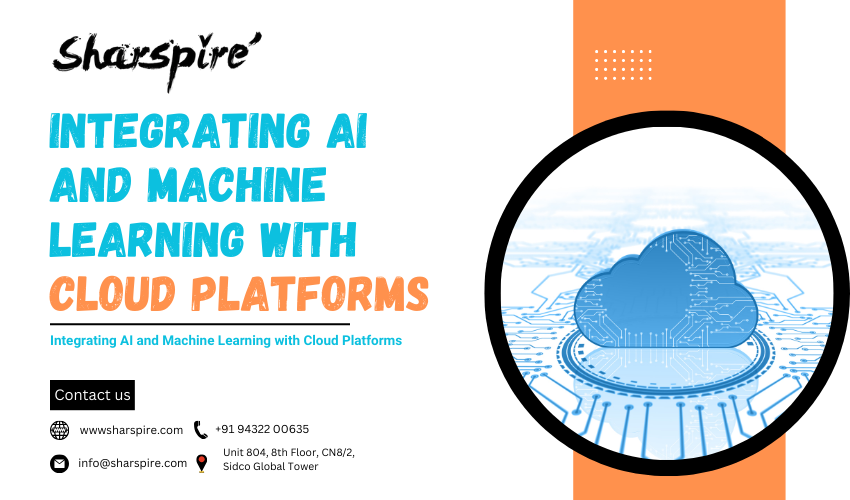Integrating AI and Machine Learning with Cloud Platforms: A Powerful Combination for Modern Enterprises
In today's rapidly evolving digital landscape, businesses are increasingly leveraging cutting-edge technologies to stay competitive. Among these, Artificial Intelligence (AI) and Machine Learning (ML) have emerged as transformative tools that enable companies to harness the power of data. When integrated with cloud platforms, AI and ML offer unprecedented capabilities for scalability, flexibility, and innovation. This integration is not just a trend; it's a strategic move that can propel enterprises into the future.

The Power of AI and Machine Learning
AI and ML are technologies that allow systems to learn from data, identify patterns, and make decisions with minimal human intervention. They are used in various applications, from predicting customer behavior and optimizing supply chains to enhancing cybersecurity and automating repetitive tasks. The potential of AI and ML is vast, but realizing this potential requires significant computational power, storage, and infrastructure.
The Role of Cloud Platforms
Cloud platforms provide the essential infrastructure needed to support AI and ML initiatives. They offer scalable computing resources, massive storage capacity, and the ability to process large datasets in real time. With cloud platforms, businesses can access these resources on-demand, eliminating the need for expensive on-premises hardware.
Benefits of Integrating AI and ML with Cloud Platforms
- Scalability and Flexibility: One of the most significant advantages of cloud platforms is their scalability. As AI and ML models require more data and computational power, cloud platforms can scale up to meet these demands. This flexibility allows businesses to experiment with different models and datasets without worrying about infrastructure limitations.
- Cost-Efficiency: Cloud platforms operate on a pay-as-you-go model, meaning businesses only pay for the resources they use. This cost efficiency is particularly beneficial for AI and ML projects, which often require significant computational power and storage. By using cloud platforms, companies can avoid the high costs associated with maintaining and upgrading on-premises infrastructure.
- Collaboration and Accessibility: Cloud platforms enable teams to collaborate more effectively by providing a centralized location for data and models. With cloud-based AI and ML tools, team members can access and work on projects from anywhere in the world, facilitating collaboration and innovation.
- Speed and Performance: Cloud platforms offer high-performance computing capabilities that can accelerate the training and deployment of AI and ML models. This speed is crucial for businesses looking to gain insights and make decisions in real time.
- Integration with Other Services: Cloud platforms often provide a wide range of integrated services, such as data storage, analytics, and security tools, that can enhance AI and ML projects. These integrations streamline workflows and allow businesses to build comprehensive solutions that address their specific needs.
Challenges and Considerations
While the integration of AI and ML with cloud platforms offers many benefits, it also presents challenges. Data security and privacy are paramount concerns, especially when dealing with sensitive information. Businesses must ensure that their cloud provider has robust security measures in place to protect data from breaches and unauthorized access.
Another consideration is the complexity of managing AI and ML workloads in the cloud. Companies need to have the right expertise and tools to monitor and optimize their models continuously. Additionally, the cost of cloud services can add up, especially for large-scale projects, so businesses must carefully plan and manage their cloud resources.
Conclusion
Integrating AI and Machine Learning with cloud platforms is a powerful combination that can drive innovation, efficiency, and competitive advantage for businesses. By leveraging the scalability, flexibility, and cost-efficiency of cloud platforms, companies can unlock the full potential of AI and ML, transforming data into actionable insights and creating value in ways previously unimaginable. As technology continues to evolve, this integration will become increasingly essential for businesses looking to thrive in the digital age.




